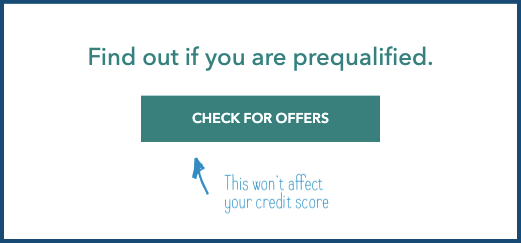Urgent Loans for Bad Credit: Getting the Help You Need When Your Score Says No
Urgent loans for bad credit can be a lifesaver when unexpected bills arise and your credit score isn't ideal. While these loans offer quick access to cash, they come with their own set of considerations. This article will equip you with the knowledge to navigate this financial terrain responsibly, explore the different types of urgent loans available, understand the pros and cons of each, and ultimately, make an informed decision to get the financial help you need.
What You Need to Secure an Urgent Loans for Bad Credit
While the application process for urgent loans might be faster, there are still specific requirements you need to meet to secure the funds. Unlike traditional loans that focus heavily on credit scores, urgent loan lenders consider a broader picture. Here's a breakdown of the typical requirements:
- Proof of Income: This is paramount. Lenders need reassurance you have a steady income stream to repay the loan. Expect to provide recent pay stubs, bank statements, or tax returns demonstrating your income level.
- Employment Verification: In addition to income proof, some lenders might require verification of your employment directly from your employer.
- Debt-to-Income Ratio (DTI): This ratio compares your monthly debt obligations (rent, car payments, minimum credit card payments) to your gross monthly income. A lower DTI indicates a stronger ability to handle additional debt.
- Credit History (For Some): Although bad credit might not be an automatic disqualification, some lenders may still consider your overall credit history, including past defaults or delinquencies.
- Collateral (For Secured Loans): Certain urgent loans, like pawn shop loans, require collateral – an item of value you surrender to the lender if you default on the loan.
Beyond the Basics:
- Age Requirement: Most lenders have a minimum age requirement, typically 18 or 21.
- Bank Account: You'll likely need a valid checking or savings account to receive the loan funds and potentially for automated repayments.
- Residency Verification: Proof of residency through utility bills or a lease agreement might be required by some lenders.
Remember: These are general requirements, and specific details can vary depending on the lender. Always check directly with the lender you're considering to understand their exact requirements and avoid any application surprises.
Streamlining the Application Process
When facing an urgent financial need, time is of the essence. The good news is, applying for urgent loans is often a faster process compared to traditional bank loans. Here's how to get started quickly:
- Gather Your Documents: Be prepared to provide proof of income (paystubs or bank statements), identification (driver's license or passport), and possibly utility bills as proof of residency.
- Shop Around and Compare Rates: Don't settle for the first lender you find. Use online resources like NerdWallet: https://www.nerdwallet.com/ or Bankrate: https://www.bankrate.com/ to compare rates, terms, and eligibility requirements from multiple lenders.
- Pre-Qualify (Optional): Some lenders offer pre-qualification options that give you an estimated loan amount and interest rate without impacting your credit score. This allows you to compare offers discreetly.
- Complete the Online Application: Most lenders offer online applications for fast processing. Be prepared to provide accurate information and electronically sign the loan agreement.
- Funding Timeline: Depending on the lender, you might receive the loan funds within the same business day or within a few business days.
By following these steps and having your documents readily available, you can significantly streamline the application process and expedite access to the funds you need. Remember, even though it's a quicker process compared to traditional loans, responsible borrowing still requires careful consideration.
Alternative Options for Urgent Cash Needs
While urgent loans can provide a quick financial fix, they shouldn't be your only option, especially if you have bad credit. Here are some alternative avenues to explore for urgent cash needs:
- Negotiate Payment Plans: Facing a hefty bill? Contact the creditor and explain your situation. Many companies are willing to work out a payment plan that allows you to spread the cost over several months, potentially with reduced interest or late fees.
- Sell Unused Items: Do a quick decluttering session. Turn unused electronics, clothes, furniture, or even collectibles into cash through online marketplaces or local consignment shops.
- Look for Side Hustles: The gig economy offers a wealth of opportunities to earn extra cash quickly. Consider freelance writing, online tutoring, or delivery services like DoorDash or Uber.
- Tap into Savings (if possible): If you have an emergency fund, this is the ideal time to utilize it. Remember, the purpose of an emergency fund is to address unexpected expenses.
- Non-Profit Assistance: Local non-profit organizations might offer financial assistance programs for specific needs like rent or utility bills. Research available resources in your area.
- Credit Union Loans: Credit unions often offer more favorable loan terms and rates compared to payday lenders, especially for members with bad credit. Consider joining a local credit union and explore their loan options.
- Pawn Shop Loans (Last Resort): Pawn shops offer quick cash loans in exchange for an item of value. However, interest rates on pawn shop loans are notoriously high. Only consider this option as a last resort and ensure you can repay the loan to avoid forfeiting your valuable item.
By exploring these alternatives, you might find a solution that doesn't involve the high costs and potential pitfalls of urgent loans. The next section will delve into a side-by-side comparison of urgent loans vs. traditional loans to help you decide which option might be best for your situation.
Urgent Loans vs. Traditional Loans
Choosing between urgent loans and traditional loans depends on your specific needs and financial situation. Here's a table outlining the key differences to help you make an informed decision:
| Feature | Urgent Loans | Traditional Loans |
| Approval Speed | Fast (often same-day or within a few business days) | Slower (can take several days or weeks) |
| Credit Score Requirements | Less strict (may approve with bad credit) | Stricter (typically require good to excellent credit) |
| Loan Amounts | Smaller amounts (typically $100 to $1,000) | Larger amounts (can range from thousands to tens of thousands) |
| Interest Rates | Very high (can reach triple-digit APRs) | Lower interest rates (depending on your creditworthiness) |
| Repayment Terms | Shorter terms (typically a few weeks to a few months) | Longer terms (can range from months to years) |
| Application Process | Often simpler, mostly online | More complex, often requires documentation and in-person meetings |
| Suitability | For emergencies or unexpected expenses with bad credit | For larger planned purchases or debt consolidation with good credit |
Remember: Urgent loans offer a quick solution but come with a high price tag. Traditional loans offer lower interest rates and better terms, but require good credit and a longer wait time for approval.
Avoiding Predatory Lenders
Urgent loans can be a lifeline, but venturing into this territory also carries the risk of encountering predatory lenders. These lenders exploit borrowers' desperation with unfair loan terms and hidden fees. Here are some red flags to watch out for:
- Exorbitant Interest Rates: Interest rates on legitimate urgent loans can be high, but anything exceeding 36% APR is a significant warning sign. Predatory lenders often lure borrowers with seemingly manageable repayments but hit them with sky-high interest rates, making the loan difficult to repay.
- Pressure to Rush: Reputable lenders will encourage you to review the loan terms carefully before committing. A lender pressuring you for a quick decision or refusing to answer your questions is likely trying to rush you into an unfavorable loan.
- Hidden Fees: Watch out for hidden fees like application fees, origination fees, late payment penalties, and prepayment penalties. A legitimate lender will disclose all fees upfront. If the fee structure seems confusing or excessive, walk away.
- Balloon Payments: A balloon payment is a large lump sum payment due at the end of the loan term. Predatory lenders might structure loans with a seemingly low monthly payment but hit you with a substantial balloon payment you may not be able to afford.
- Unethical Collection Practices: Legitimate lenders will follow ethical collection practices. If a lender threatens aggressive tactics like wage garnishment or harassing phone calls before a default occurs, it's a major red flag.
- Vague or Missing Loan Terms: A reputable lender will provide clear and concise loan terms outlining the interest rate, repayment schedule, and all associated fees. If the loan terms seem unclear or crucial information is missing, don't proceed.
By recognizing these red flags, you can protect yourself from predatory lenders and make informed financial decisions.
Essential Tips for Responsible Borrowing
Urgent loans can be a helpful tool in times of need, but navigating them responsibly is crucial to avoid falling into a debt trap. Here are some essential tips to ensure you borrow wisely:
- Exhaust All Alternatives First: Before resorting to a loan, explore all other options. Can you cut back on non-essential expenses, negotiate a payment plan with a creditor, or borrow interest-free from a friend or family member?
- Borrow Only What You Need: It's tempting to take out more than necessary, but resist the urge. Only borrow the exact amount you need to cover your urgent expense.
- Shop Around & Compare Rates: Don't settle for the first offer you find. Compare interest rates, terms, and fees from multiple lenders to secure the most affordable option.
- Understand the True Cost: Look beyond the headline interest rate and factor in origination fees, late payment penalties, and prepayment fees (if applicable) to understand the loan's total cost.
- Create a Repayment Plan: Before securing the loan, have a solid plan for repayment. Factor the loan payment into your monthly budget to ensure you can make timely payments without straining your finances.
- Communicate with Lenders: If you face difficulty repaying the loan, communicate with the lender immediately. Some lenders may offer hardship programs or repayment modifications.
- Consider Credit Building Strategies: While addressing your urgent need, work on improving your credit score for future financial opportunities. Timely payments on your current loans, reduced credit card utilization, and secured loans can all help rebuild credit.
By following these tips, you can approach urgent loans responsibly and utilize them as a temporary solution without getting stuck in a cycle of debt. The next section will explore the different types of urgent loan terms you'll encounter to help you make an informed decision.
Frequently Asked Questions
Yes, unlike traditional loans that heavily rely on credit scores, some lenders specializing in urgent loans may approve you even with bad credit. They consider other factors like income stability and employment verification. However, be prepared for higher interest rates compared to borrowers with good credit.
The approval and funding process for urgent loans is typically faster than traditional loans. You might receive the loan funds within the same business day or within a few business days depending on the lender.
Interest rates for urgent loans with bad credit tend to be higher than traditional loans. They can vary depending on the lender, your creditworthiness, and the loan amount. Be prepared for APRs exceeding 36%. It's crucial to compare rates from multiple lenders to find the most affordable option.
The required documents can vary by lender, but generally, you'll need proof of income (paystubs or bank statements), identification (driver's license or passport), and possibly utility bills as proof of residency.
Before resorting to an urgent loan, explore alternative options like negotiating payment plans with creditors, selling unused items, pursuing side hustles, or tapping into emergency savings (if available). Local non-profit organizations might also offer assistance programs for specific needs. Consider these alternatives to potentially avoid the high costs of urgent loans.
While addressing your urgent need, focus on building your credit score for future financial opportunities. Make timely payments on your current loans, reduce credit card utilization, and consider secured loans (if applicable) to demonstrate responsible credit behavior.
Shop around and compare rates from multiple lenders. Utilize online resources like NerdWallet or Bankrate to compare interest rates, terms, and eligibility requirements for lenders specializing in bad credit loans.
Failing to repay an urgent loan can result in late fees, additional interest charges, and potential damage to your credit score. If you're facing difficulty repaying, communicate with the lender immediately. Some lenders may offer hardship programs or repayment modifications.



